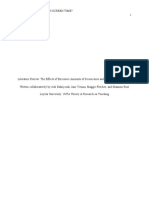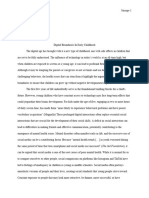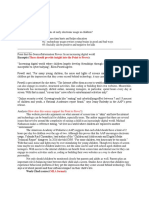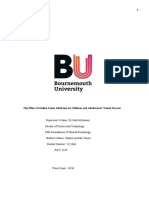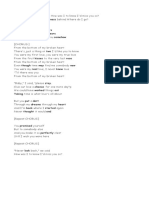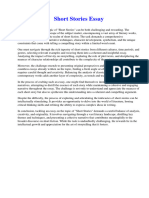0% found this document useful (0 votes)
13 views6 pagesgr9 Sample IR
The report examines the impact of excessive screen time on adolescents' mental health, highlighting concerns such as cognitive and social-emotional development issues, obesity, and sleep irregularities. It identifies causes including parental employment and peer pressure, as well as the phenomenon of FOMO (fear of missing out) exacerbated by social media. The document emphasizes the need for awareness and action to mitigate screen time effects, suggesting strategies for parents and the importance of societal pressure to enforce limits.
Uploaded by
2437244Copyright
© © All Rights Reserved
We take content rights seriously. If you suspect this is your content, claim it here.
Available Formats
Download as DOCX, PDF, TXT or read online on Scribd
0% found this document useful (0 votes)
13 views6 pagesgr9 Sample IR
The report examines the impact of excessive screen time on adolescents' mental health, highlighting concerns such as cognitive and social-emotional development issues, obesity, and sleep irregularities. It identifies causes including parental employment and peer pressure, as well as the phenomenon of FOMO (fear of missing out) exacerbated by social media. The document emphasizes the need for awareness and action to mitigate screen time effects, suggesting strategies for parents and the importance of societal pressure to enforce limits.
Uploaded by
2437244Copyright
© © All Rights Reserved
We take content rights seriously. If you suspect this is your content, claim it here.
Available Formats
Download as DOCX, PDF, TXT or read online on Scribd
/ 6



















